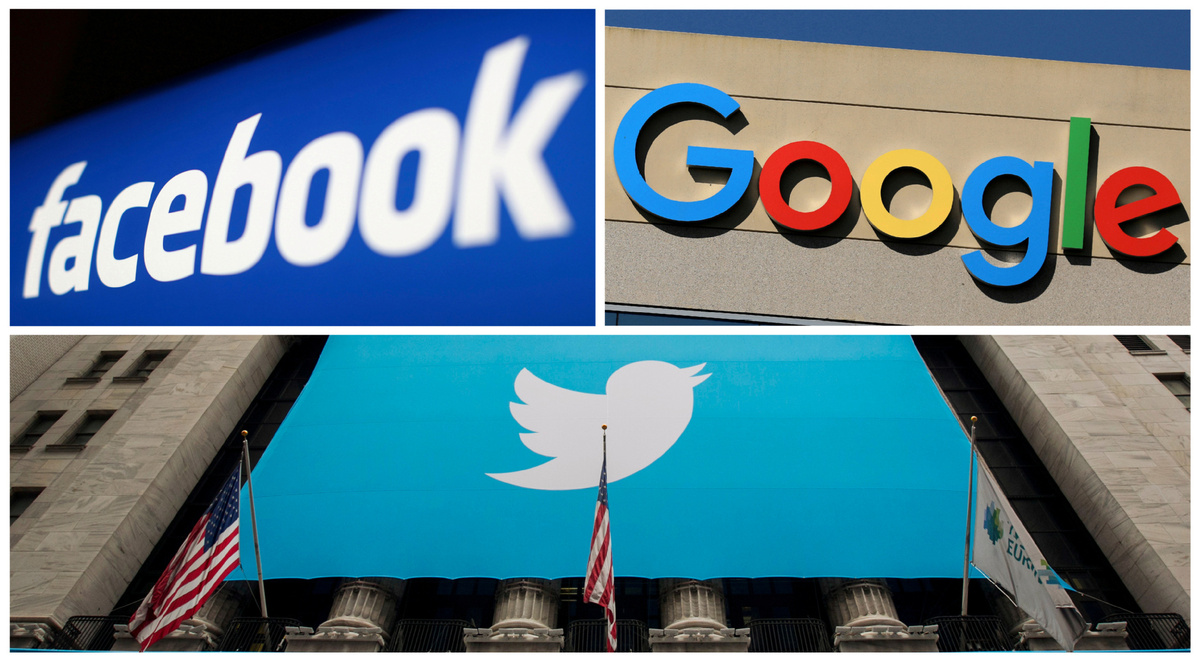Big Tech CEOs defend against allegations of political bias
By AI HEPING in New York | China Daily Global | Updated: 2020-10-29 23:54

A US Senate committee hearing on Wednesday with the heads of social media giants Twitter, Facebook and Google turned into testy exchanges with Republican senators as the CEOs denied charges of political bias.
The Commerce Committee hearing was to have focused on Section 230 of the Communications Decency Act, which protects social media companies from liability for what their users post.
Instead, committee members asked Twitter's Jack Dorsey, Facebook's Mark Zuckerberg and Google's Sundar Pichai more than 100 questions about social media speech and the alleged harm caused by their platforms.
Dorsey received most of the questions and criticism, with Republicans asking him about alleged censorship of conservative politicians and media outlets.
Senator Ted Cruz of Texas tore into Dorsey over the platform's recent suppression of an unverified story from the conservative-leaning New York Post concerning allegations against Democratic presidential nominee Joe Biden and his son Hunter, which Biden's campaign has denied.
Twitter, along with Facebook, had quickly moved to block the story, with Twitter saying it contained screenshots of unverified emails from Hunter Biden and violated the platform's policies on hacked materials. Twitter soon changed its policies, although the New York Post remained locked out of its Twitter account for another two weeks.
"Who the hell elected you and put you in charge of what the media are allowed to report and what the American people are allowed to hear?" Cruz asked Dorsey.
His question typified the Republicans' approach to the nearly four-hour hearing conducted via webcast, as their questions and comments consisted mostly of accusing the executives of censorship and bias against conservatives.
Cruz accused Twitter of acting as a "Democratic Super PAC" in blocking the Post story.
"I hear the concerns and acknowledge them," Dorsey replied, but he denied Twitter was favoring Democratic causes.
Republican Senator Cory Gardner of Colorado questioned Twitter's decisions to put warning labels on some posts by President Donald Trump but not others by Iran's Supreme Leader Ayatollah Ali Khamenei threatening Israel and denying the Holocaust.
Dorsey said the company has policies against the incitement of violence, but he characterized the Iranian leader's statements as newsworthy "saber-rattling, which is part of the speech of world leaders".
Committee Chairman Senator Roger Wicker of Mississippi also brought up restrictions on Twitter against Trump. He told Dorsey that Twitter "allows foreign dictators to post propaganda, typically without restriction" yet "you typically restrict the president of the United States''.
Dorsey replied that Twitter had taken actions against leaders around the world, including Trump. "As we think about enforcement, we consider severity of potential offline harm, and we act as quickly as we can," he said.
Google's Pichai pushed back on accusations of bias, saying, "Let me be clear: We approach our work without political bias, full stop."
Democrats called the hearing a "sham"' for political gain six days before the presidential election, and they focused on how the three companies handle violent extremists.
They criticized the tech platforms for fostering the spread of militant hate groups. Michigan's Gary Peters and Minnesota's Amy Klobuchar hammered Facebook about its role in radicalizing people. "Recent studies have shown that part of your algorithms push people toward more divisive content," Klobuchar said.
Democrats also asked Zuckerberg how Facebook was protecting against interference in the election. He said the company had spent billions of dollars on election security and promised to push back against foreign disinformation targeted at the political process.
Democrats accused Republicans of using the hearing to pressure the CEOs to ease their content restrictions.
"It's a sham," Senator Brian Schatz of Hawaii said. He cast the hearing as part of a Republican effort "to bully the CEOs of private companies into carrying out a hit job on a presidential candidate", referring to Joe Biden.
"I'm not going to use my time to ask any questions, because this is nonsense," Schatz said.























